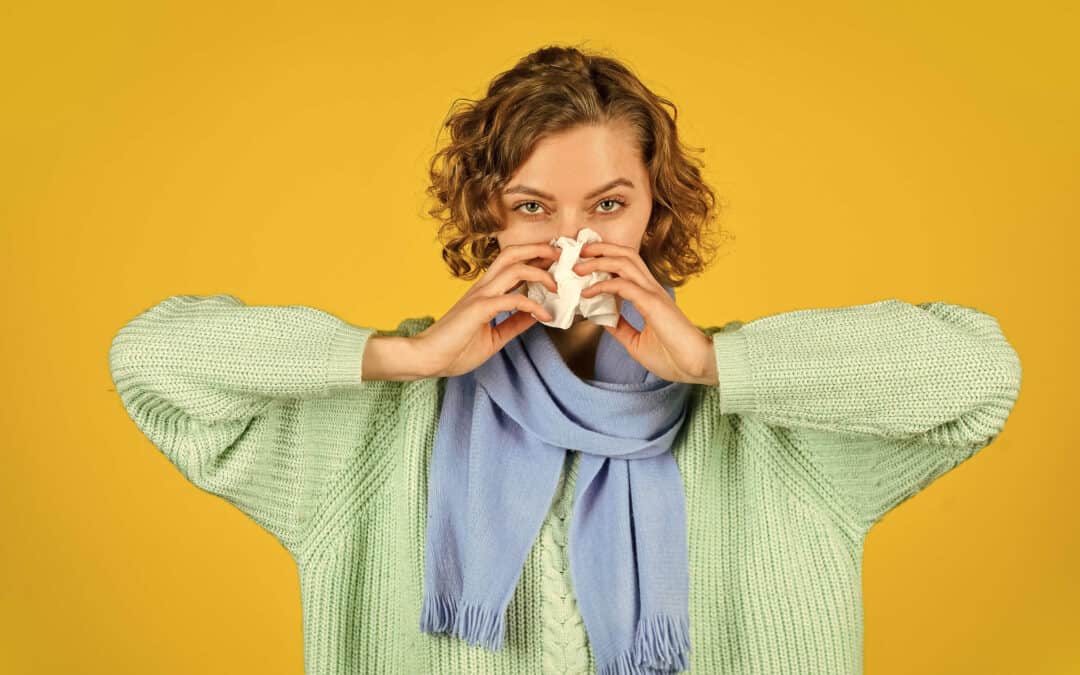As the winter holidays rapidly approach, many people look forward to festive gatherings, delicious food, and cozy moments by the fire. However, for those who suffer from seasonal allergies, this time of year can also bring discomfort. Cold weather, indoor allergens, and even holiday decorations can aggravate allergy symptoms. Fortunately, there are practical steps you can take to manage your allergies and enjoy a more comfortable holiday season.
Understanding Seasonal Allergies in Winter
Winter might not seem like a typical allergy season, but many allergens can still cause problems. While spring and fall bring pollen, winter often brings indoor allergens like dust mites, mold, and pet dander. Knowing what triggers your allergies can help you prepare and take action to reduce exposure.
Common Winter Allergens
Dust Mites
Dust mites thrive in warm, humid environments. During winter, when windows are closed and heaters are on, homes can become perfect breeding grounds. Regularly washing bed linens in hot water and using dust-mite-proof covers on pillows and mattresses can help reduce their presence.
Mold
Mold spores can grow in damp places like basements, bathrooms, and even Christmas trees. Cleaning and checking these areas regularly can minimize mold exposure. Using a dehumidifier can also help keep mold at bay.
Pet Dander
As families spend more time indoors, exposure to pet dander increases. Regularly grooming pets and cleaning your home can reduce allergens from pets. Consider creating pet-free zones in your home, especially in bedrooms.
Holiday Decorations
Holiday decorations, especially those stored in basements or attics, can collect dust and mold. Wipe down decorations before bringing them into your living spaces. Opt for artificial trees if real ones trigger your allergies.
Practical Tips to Manage Allergies
Now that you know the common winter allergens, let’s explore some practical tips to help you manage your symptoms.
Keep Your Home Clean
A clean home is vital for reducing allergen levels. Vacuum carpets and upholstered furniture regularly with a HEPA filter vacuum. Dust surfaces using damp cloths to trap allergens instead of spreading them. Additionally, consider using air purifiers with HEPA filters to remove airborne allergens.
Control Humidity Levels
Maintaining the right humidity levels (between 30-50%) can help prevent the growth of mold and dust mites. Use a hygrometer to monitor humidity in your home. If necessary, use a dehumidifier in damp areas and a humidifier in dry areas. However, be cautious with humidifiers as excessive moisture can encourage mold growth.
Wash Bedding Frequently
Your bed can harbor a surprising number of allergens. Wash sheets, pillowcases, and blankets weekly in hot water. Encase your mattress and pillows in allergen-proof covers to block dust mites.
Groom Pets Regularly
Regular pet grooming can help reduce dander. Bathe pets as needed and brush them often to remove loose fur and dander. If you are highly allergic, consider keeping pets out of certain areas of the home.
Over-the-Counter Remedies
Many over-the-counter (OTC) medications can help manage allergy symptoms. Antihistamines can relieve sneezing and itching, while decongestants can reduce stuffy noses. Saline nasal sprays can help clear nasal passages.
Prescription Medications
If OTC medications are not effective, consult with a professional. Prescription treatments, such as nasal corticosteroids or allergy shots, can provide relief for more severe symptoms.
Preparing for Holiday Gatherings
If you are attending a gathering, communicate your allergies to your host. This can help them take steps to reduce potential allergens, such as avoiding scented candles and keeping pets out of certain areas. Choose seating away from fireplaces, which can irritate respiratory symptoms. If possible, stay in areas with fewer upholstered surfaces and rugs, as these can trap allergens.
Consider bringing your own pillow, allergen-proof cover, or air purifier to overnight gatherings. Having familiar and clean items can help reduce exposure to allergens.
Conclusion
Seasonal allergies don’t have to ruin your winter holidays. By understanding common winter allergens and taking proactive steps to manage them, you can enjoy the festive season more comfortably. Keep your home clean, control humidity levels, groom pets regularly, and practice good personal hygiene. Don’t shy away from using medications and natural remedies as needed. With a little preparation, you can make the most of your holiday celebrations while keeping your allergies in check.

